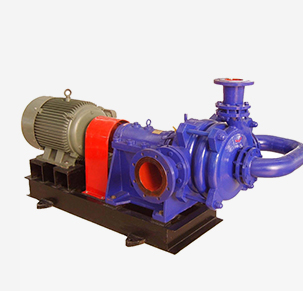Samoan
- Afrikaans
- Albanian
- Amharic
- Arabic
- Armenian
- Azerbaijani
- Basque
- Belarusian
- Bengali
- Bosnian
- Bulgarian
- Catalan
- Cebuano
- Corsican
- Croatian
- Czech
- Danish
- Dutch
- English
- Esperanto
- Estonian
- Finnish
- French
- Frisian
- Galician
- Georgian
- German
- Greek
- Gujarati
- Haitian Creole
- hausa
- hawaiian
- Hebrew
- Hindi
- Miao
- Hungarian
- Icelandic
- igbo
- Indonesian
- irish
- Italian
- Japanese
- Javanese
- Kannada
- kazakh
- Khmer
- Rwandese
- Korean
- Kurdish
- Kyrgyz
- Lao
- Latin
- Latvian
- Lithuanian
- Luxembourgish
- Macedonian
- Malgashi
- Malay
- Malayalam
- Maltese
- Maori
- Marathi
- Mongolian
- Myanmar
- Nepali
- Norwegian
- Norwegian
- Occitan
- Pashto
- Persian
- Polish
- Portuguese
- Punjabi
- Romanian
- Russian
- Samoan
- Scottish Gaelic
- Serbian
- Sesotho
- Shona
- Sindhi
- Sinhala
- Slovak
- Slovenian
- Somali
- Spanish
- Sundanese
- Swahili
- Swedish
- Tagalog
- Tajik
- Tamil
- Tatar
- Telugu
- Thai
- Turkish
- Turkmen
- Ukrainian
- Urdu
- Uighur
- Uzbek
- Vietnamese
- Welsh
- Bantu
- Yiddish
- Yoruba
- Zulu
Telephone: +86 13120555503
Email: frank@cypump.com
Sep . 23, 2024 02:49 Back to list
septic tank pumps for sale
Septic Tank Pumps for Sale A Guide to Choosing the Right Pump
When it comes to maintaining a septic system, one of the most critical components is the septic tank pump. These pumps play a vital role in transporting wastewater from your tank to the drain field. If you’re in the market for a septic tank pump, understanding your options is essential to ensure the health and efficiency of your septic system. In this article, we'll explore the types of septic tank pumps available for sale, their benefits, installation considerations, and maintenance tips.
Types of Septic Tank Pumps
There are several types of septic tank pumps to choose from, each designed for specific applications. The most common types include
1. Effluent Pumps These pumps are designed to move liquid waste from the septic tank to the drain field. They can handle solids up to half an inch and are used primarily in systems where gravity flow is not possible.
2. Sewage Pumps These pumps are more robust and can handle larger solids, making them suitable for systems where the waste includes paper or other large items. They are typically used in residential settings with basement bathrooms or areas below the septic tank level.
3. Backup Pumps A backup pump is an additional layer of security, ensuring your system can still function if the main pump fails. This is particularly important in areas prone to power outages or system overloads.
Benefits of Upgrading Your Pump
Investing in a new septic tank pump can lead to numerous benefits. An upgraded pump can enhance the efficiency of your septic system, reduce the risk of system backups, and ultimately save you money on repairs and maintenance. Additionally, modern pumps are often equipped with advanced features such as float switches, alarms, and backup systems that provide real-time monitoring and ensure the safe operation of your septic setup.
septic tank pumps for sale

Installation Considerations
Installing a septic tank pump is a task that often requires professional assistance. It is crucial to select a pump that is appropriately sized for your septic system to avoid potential issues. Factors such as the depth of the tank, the height to which the pump must raise the waste, and the overall volume of wastewater must be considered during the selection process. It’s advisable to consult with a septic system professional who can assess your specific needs and recommend the best pump.
Maintenance Tips
Once you have your septic tank pump installed, regular maintenance is essential to prolong its life and performance. Here are a few tips
- Inspect Regularly Keep an eye on your pump and the overall septic system. Look for signs of wear, unusual noises, or any leaks.
- Keep It Clean Ensure that the area around the pump is clear of debris and free from tree roots that could impede its function.
- Scheduled Service Consider scheduling regular maintenance checks with a septic professional, who can provide comprehensive inspections and service.
Conclusion
Finding the right septic tank pump for your system is crucial for maintaining a healthy and efficient septic system. By understanding the different types of pumps available, recognizing the benefits of modern technology, and prioritizing maintenance, you can ensure that your septic system operates smoothly for years to come. Whether upgrading your existing pump or installing a new one, investing time and resources into this critical component is well worth it.
-
Heavy-Duty Mining Sludge Pumps - Wear-Resistant Slurry Handling
NewsAug.02,2025
-
Horizontal Split Case Pump with GPT-4 Turbo | High Efficiency
NewsAug.01,2025
-
ISG Series Pipeline Pump - Chi Yuan Pumps | High Efficiency, Durable Design
NewsAug.01,2025
-
Advanced Flue Gas Desulfurization Pump with GPT-4 Turbo | Durable & Efficient
NewsJul.31,2025
-
ISG Series Vertical Pipeline Pump - Chi Yuan Pumps | Advanced Hydraulic Design&Durable Construction
NewsJul.31,2025
-
ISG Series Vertical Pipeline Pump - Chi Yuan Pumps | Energy Efficient & Low Noise
NewsJul.31,2025










